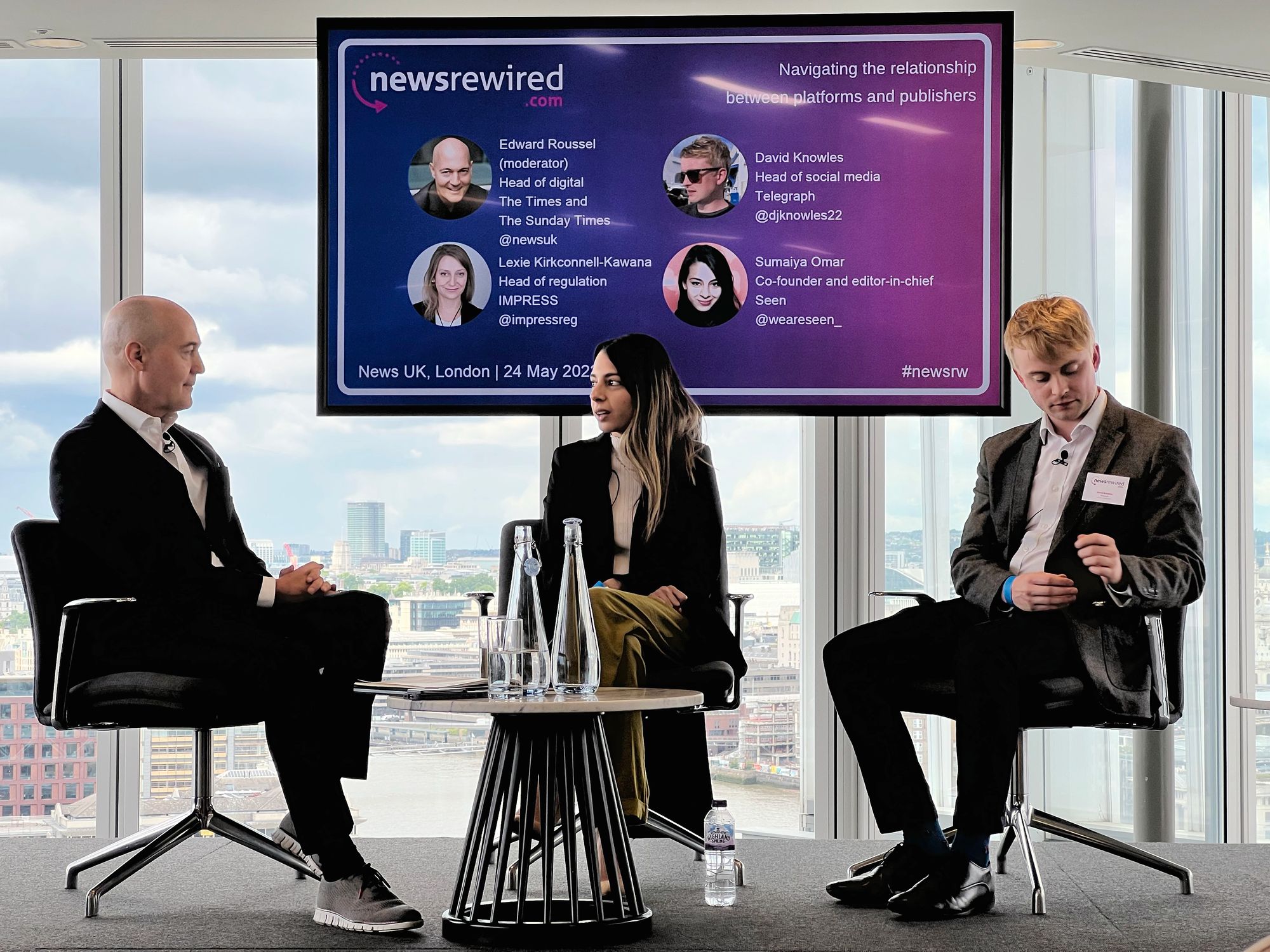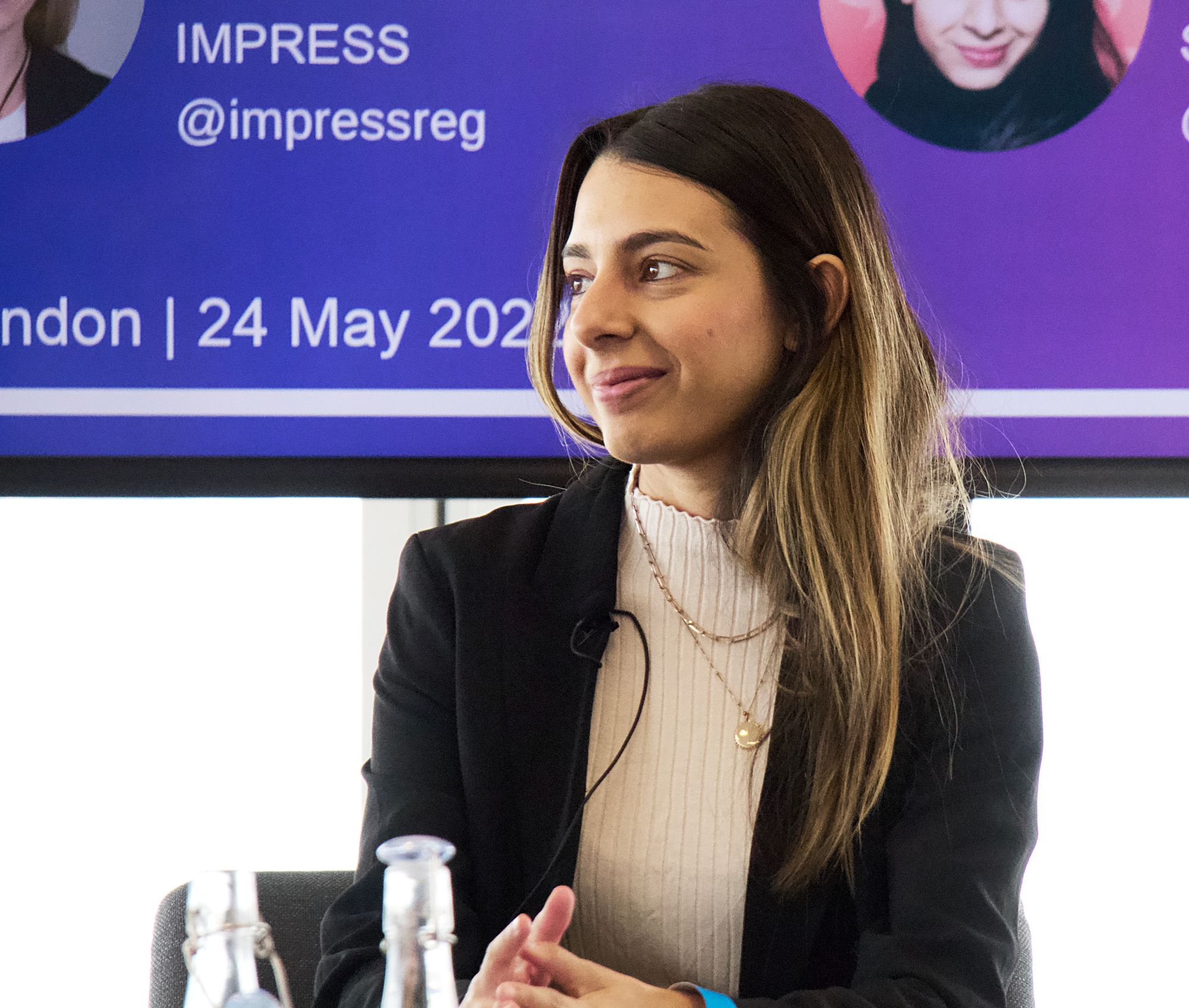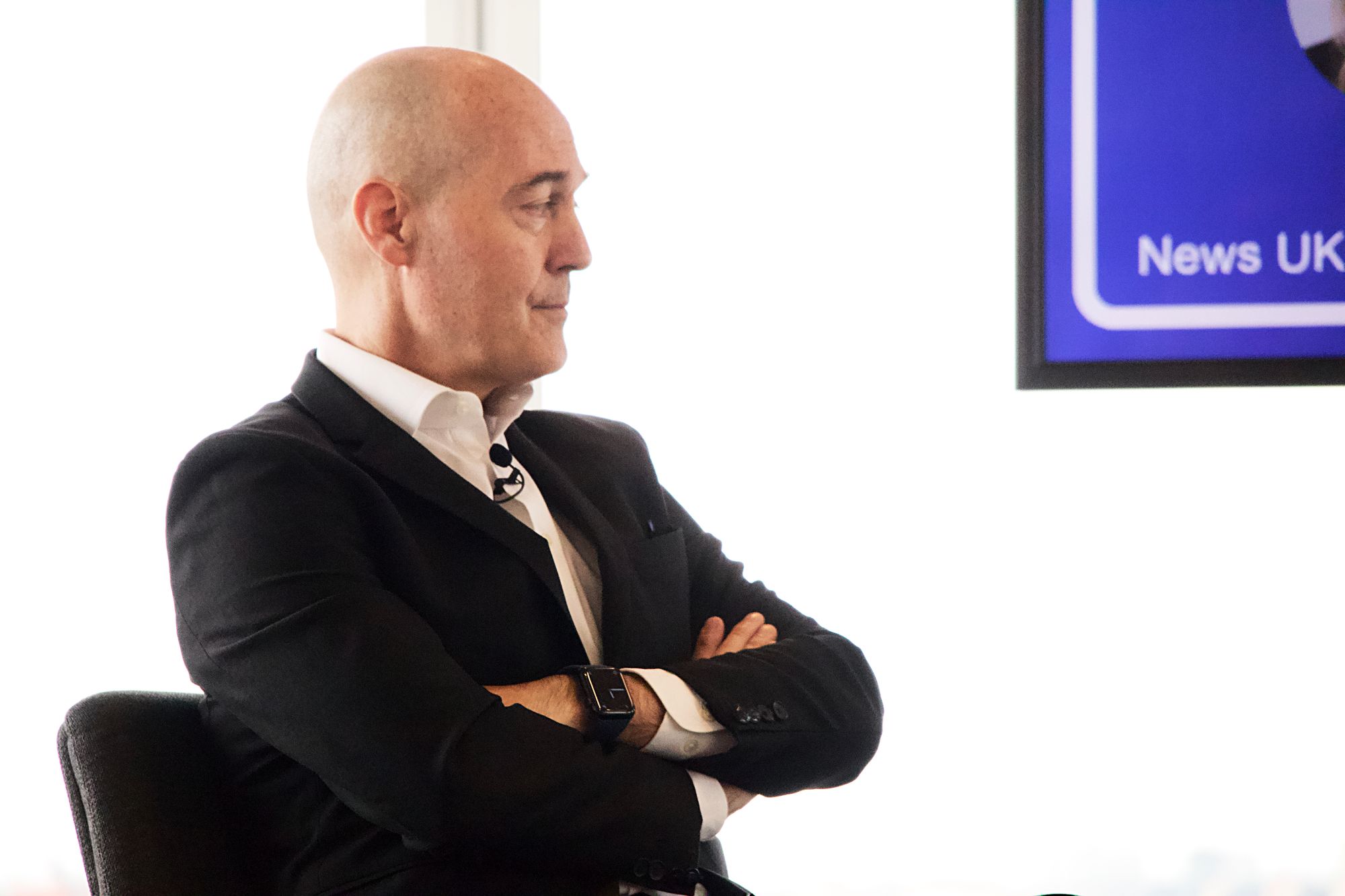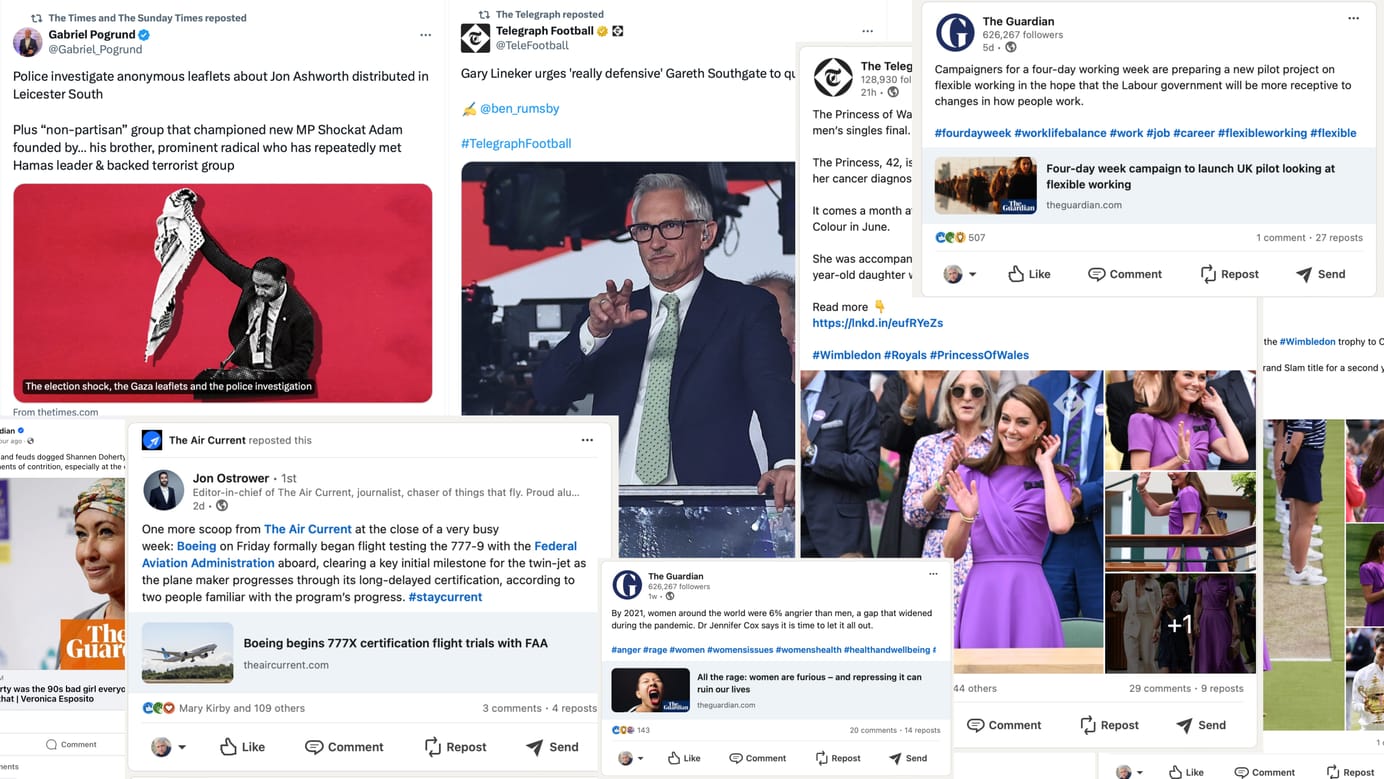
Platforms and Publishers: the best of frenemies?
Are we any nearer buidling a more healthy relationship between news publishers and social media platforms? The outlook is not good, suggests a news:rewired panel…
The relationship between news publishers and the social platforms has been growing ever more tense. Is the Australian model a solution? Or is regulation inevitable? A news:rewired panel discussion.
Panel
- David Knowles, head of social media, The Telegraph
- Sumaiya Omar, co-founder and editor-in-chief, Seen
- Lexie Kirkconnell-Kawana, head of regulation, IMPRESS
- Chair: Edward Roussel, head of digital, The Times and The Sunday Times
Should the platforms pay for news?

Does Lexie agree with the regulation in Australia that compels platforms to pay publishers? She points out that the legislation never came into force. The platforms did a deal with the big publishers behind closed doors to prevent it. The publishers in Australia who got the value would say it’s a good idea — but it was a failure for independent publishers. It was also a failure for the public because it didn’t deliver funding for issues like news deserts. The Australian legislation aimed to lift the veil on the value that news delivers to platforms. Let’s see if the UK will follow – can we do it and mitigate the worst consequences?
David thinks it was fantastic for the big publishers, but he echoes the concern about the exclusion of smaller publishers, and its risk of calcifying the UK media landscape. You need media at all scales, from the village newspaper to global titles.
As a small company with little to no bargaining power, Australia’s model wouldn’t help, says Sumaiya. There is something to be said for editorial independence outside of algorithms, but who is deciding who is getting the money? Platforms? Government? It reinforces the monopoly of big media companies around the world. It goes against the democratisation of social media. The only reason they could start their company was that they required little to no capital to do what they did.

Snapchat is Seen’s main platform, and Snap has an equity stake in the company, but no editorial oversight. They don’t get any special treatment or insight into the algorithm. However, Snapchat Discover is a walled garden, built that way to prevent the spread of misinformation.
Who should regulate social media?
Should Trump be allowed back on Twitter. Sumaiya swings wildly back and forwards on this. Today, he thinks no — but he notes that the platforms have ended up as the arbiters of free speech. So, he completely sees the reason they shouldn’t have that power.
Lexie thinks that regulation is inevitably coming. It’s been a deregulated space until now, but bills are coming forward to deal with that, and the platforms will have to cede some authority and control. Is Ofcom the right body to make these decisions? How will journalism react to this? Currently, the platforms get to decided who is a journalist — and what platform can be seen or not. That’s a real concern for journalists that platforms and big companies will be deciding what is public interest journalism.

David’s team at The Telegraph have been doing war reporting on TikTok, and they’ve had videos just pulled by the service. They won’t tell you why they pulled it. Some examples are explicable in the terms of the rules, but others seem to just bar you from showing the results of bombardment. They’re seeing fewer issues now, but it’s still very much a grey area.
Regulating the platforms
Snapchat is one of the few platforms left that isn’t run by Mark Zuckerberg, explains Sumaiya. Facebook is going after VR, Snapchat AR. Should Facebook be broken up? She’s not sure — Lexie thinks that it would be one way of dealing with it, but there are numerous other tools in the toolbox they could use to regulate the platforms. Regulation can foster growth and innovation, but levelling the playing field and protecting smaller players so that they can grow. That’s missing from the discussion at the moment.
The discussion needs to be broadened up beyond just restricting or breaking up the companies, she argues.
David points out that there’s often a big difference between what the platforms tell you will work, and what actually works. People want good stories, wherever they are. Their job as a social team is to get their great journalists’ stories out there. Doing it in ways the platforms don’t recommend may be playing on hard mode — but it’s their job.

Making content is not an easy or a cheap job, says Sumaiya, so there is a genuine value exchange, news add things to the platforms. But she’s seeking less platform dependence than they have now — and that’s probably true for most media organisations. Build audiences on social, but then make them loyal in an owned and operated way.
Some platforms have been better than others in working with publishers: TikTok is notoriously bad, YouTube has done much better. In the end, though, from a business perspective, we should rely less on them. David agrees. They work out how to use a platform first, before they open a conversation with the publisher for advice or guidance. They need to do the organic work first.
Sign up for e-mail updates
Join the newsletter to receive the latest posts in your inbox.










